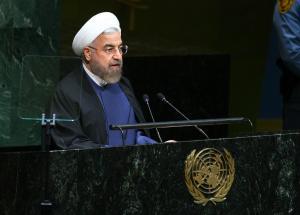TEHRAN, Feb. 11 (UPI) — Iran has restructured its budget in such a way as to shield the economy from oil price volatility, a parliamentary planning official said.
The Iranian government said that, since late 2013, oil exports have declined by about 1.5 million barrels per day, taking about $100 billion from the revenue stream. Iranian exports were curbed according to a late 2013 nuclear agreement with world powers.
Ahmadreza Dastgheib, a deputy planning official in the Iranian parliament, said budget plans moving forward were drafted with oil prices in mind.
“With regard to uncertainty about realization of oil revenues and special economic circumstances of the country, we have considered two ceilings for budget revenues in next year’s public budget, which relieve our worries about not realization of anticipated revenues,” he said Tuesday.
The budget for the current Iranian year, which ends mid-March, relies on oil for 39.3 percent of government revenues. Drafts for next year call for a 6 percent decline in oil dependency.
Even if oil prices drop to $40 per barrel, about 25 percent less than the price for the global benchmark Brent, the official said Iran would still see positive earnings in next year’s budget.
Iranian President Hassan Rouhani last year described the drop in crude oil prices as a plot against his country. Late 2014 decisions from the Organization of Petroleum Countries, led tacitly by Iranian adversary Saudi Arabia, and production gains in the United States are in part behind oil price declines.
Western economic sanctions on Iran’s energy sector are already impacting the health of the Iranian economy. For fiscal year 2013-14, the World Bank estimates the Iranian economy contracted at an annual rate of 1.7 percent.
Iranian lawmakers take up budgetary debates next week.

COMMENTS
Please let us know if you're having issues with commenting.